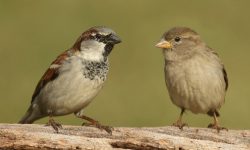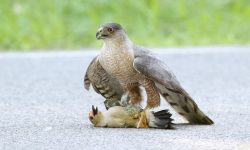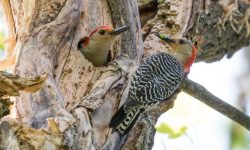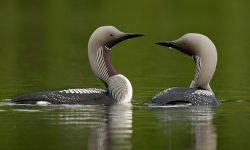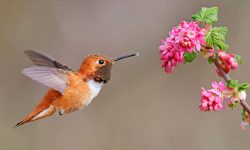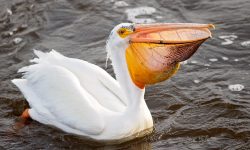Possums are among nature’s most adaptable and misunderstood creatures. Found throughout North America, these nocturnal marsupials thrive in both forests and cities, feeding on whatever nature—or humans—provide. Their ability to eat a wide variety of foods helps them survive harsh conditions and changing seasons.
When you spot a possum rummaging through your backyard or climbing a fence, you might wonder: what exactly do these animals eat? The answer is fascinating. Possums are opportunistic omnivores, which means they eat plants, animals, and almost anything in between. This diverse diet not only keeps them healthy but also helps clean up the environment by removing unwanted pests and decomposing materials.
In this detailed guide, we’ll explore 15 foods possums love the most, from juicy fruits to insects and even some unexpected treats. We’ll also explain how their diet changes depending on habitat, season, and food availability, giving you a complete understanding of their feeding behavior.
Understanding the Possum Diet
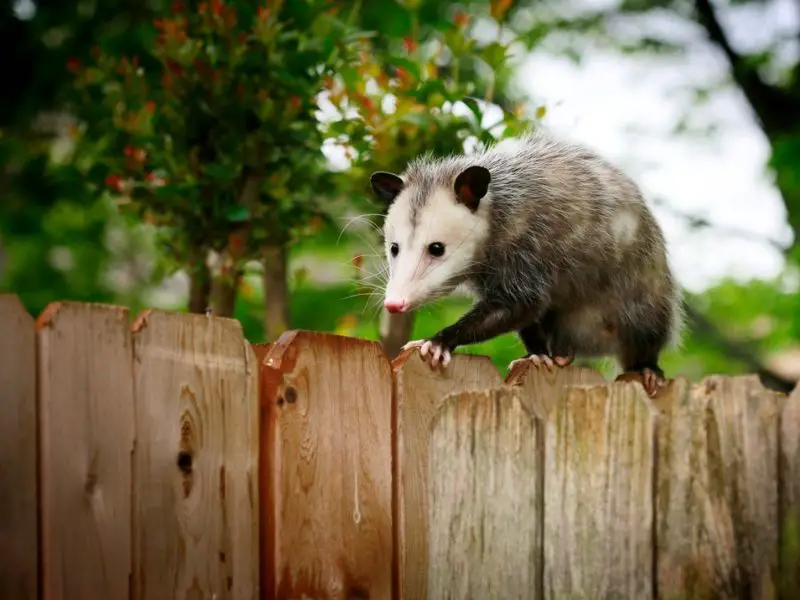
Possums don’t hunt in the same way predators like foxes or coyotes do. Instead, they wander slowly, sniffing out edible opportunities as they go. Their diet is largely shaped by what’s easiest to find. In rural areas, they may rely on natural foods like berries or insects, while in suburban neighborhoods, they might feast on leftover pet food or discarded scraps.
Their sense of smell is incredibly sharp, allowing them to detect fruiting trees, carrion, or even a half-open garbage can from afar. Possums are also equipped with dexterous front paws that help them grasp and manipulate food. This adaptability is one of the main reasons they’ve become successful survivors in almost every environment across the continent.
15 Foods Possums Love the Most
1. Fruits
Fruits are one of the possum’s favorite foods. Sweet, aromatic, and packed with energy, fruits like apples, grapes, pears, and berries are irresistible to them. In the wild, they often consume fallen fruits under trees or shrubs, but they’ll also climb low branches to reach ripening ones.
This high-sugar food gives them a quick burst of energy, essential for their nighttime activities. During summer and fall, when fruits are abundant, possums tend to eat more of them, helping them store fat for the colder months.
2. Insects
Insects make up a substantial portion of a possum’s protein intake. Beetles, grasshoppers, crickets, cockroaches, and caterpillars are all on the menu. Possums forage under leaf litter, logs, or near light sources where insects gather at night.
This insect-rich diet not only provides protein but also plays a valuable ecological role—helping control pest populations. For farmers or gardeners, a resident possum can be an unexpected ally in natural pest management.
3. Small Vertebrates
Possums are not aggressive hunters, but they won’t pass up a chance to catch small vertebrates such as frogs, mice, lizards, or baby birds. They use their sharp claws and quick reflexes to capture these small prey items.
Though their hunting skills are modest, these protein-packed meals are valuable, especially when other food is scarce. In the wild, they help regulate small animal populations while gaining essential nutrients.
4. Eggs
If a possum stumbles upon a nest, it may consume eggs. Bird and reptile eggs are high in fat and nutrients, making them a desirable addition to their diet. They carefully crack eggs using their claws or teeth to reach the rich yolk inside.
For this reason, some backyard chicken owners may need to secure coops at night, as hungry possums are known to raid unprotected nests for an easy meal.
5. Carrion
Possums are nature’s cleanup crew. They consume carrion—dead animals such as roadkill or decaying carcasses—playing an important ecological role in preventing the spread of disease and recycling nutrients back into the ecosystem.
Their stomachs can handle bacteria that would harm many other animals, and they’re particularly drawn to the calcium and minerals in bones. By eating carrion, possums help maintain a cleaner, healthier environment.
6. Pet Food
One of the most common foods possums eat in urban areas is leftover pet food. Bowls of cat or dog kibble left outside overnight can attract these nocturnal scavengers quickly. The smell of meat and fat in pet food is irresistible to them.
While it’s not harmful in small amounts, regular feeding on pet food can cause possums to rely on human-provided meals, which disrupts their natural foraging habits. Homeowners can prevent this by feeding pets indoors or removing food after dark.
7. Grains and Seeds
Possums will readily eat grains, seeds, and nuts, especially when they find them in bird feeders or scattered under trees. They don’t usually seek out seeds as their primary food, but they’ll take advantage of easy access to these calorie-dense morsels.
During winter, when fruits and insects are scarce, seeds and grains can provide the energy they need to stay active and maintain body temperature.
8. Vegetables and Garden Crops
Vegetables form part of the possum’s diet when available. They enjoy tender shoots, leafy greens, and root vegetables like carrots or sweet potatoes. Gardeners often notice nibbled produce, which can be the work of visiting possums.
In suburban gardens, their vegetable consumption can be frustrating, but it also shows their adaptability. They easily switch from wild plants to cultivated crops depending on what’s available.
9. Nuts
Nuts such as acorns, walnuts, and pecans are valuable for possums. Their strong teeth help them crack shells and reach the nutritious kernels inside. Nuts are rich in fats and proteins, helping them build energy reserves before colder months.
In wooded habitats, they’ll gather and store nuts, much like squirrels do, though on a smaller scale.
10. Leaves and Flowers
Though not their main diet, possums will sometimes eat soft leaves and flowers. They prefer tender young shoots, especially in spring when plant growth is fresh. These plant parts provide vitamins and hydration when water is scarce.
In areas with ornamental plants or flowering gardens, possums may occasionally nibble buds, petals, or leaves, contributing to their diverse omnivorous diet.
11. Earthworms
Earthworms are another valuable protein source for possums. After rain or during damp nights, they dig through soil or leaf litter to find them. Worms are easy to catch and digest, making them an ideal food for younger or smaller possums.
This feeding behavior also aerates the soil and assists with natural composting, creating a healthier ecosystem overall.
12. Snails and Slugs
Possums are natural snail and slug hunters. They seek them out in moist, shaded areas such as under logs or near garden beds. These soft-bodied creatures are easy to eat and provide hydration along with nutrition.
While gardeners might not appreciate the occasional damage to plants, possums actually help reduce pest infestations by consuming large numbers of slugs and snails.
13. Fish and Amphibians
When living near ponds or rivers, possums occasionally feed on small fish, frogs, or tadpoles. They don’t actively swim to hunt but rather capture stranded or slow-moving prey near shallow water edges.
This opportunistic feeding further highlights their ability to exploit nearly every food resource available in their habitat.
14. Human Food Scraps
Urban possums have learned that trash bins and compost piles often contain edible leftovers. They’ll consume everything from fruit peels to bread crumbs, meat trimmings, and even spoiled food.
While this demonstrates their adaptability, it’s also the main reason possums are sometimes viewed as pests. Keeping trash sealed and secure helps reduce these encounters.
15. Mushrooms and Fungi
Possums occasionally eat mushrooms and fungi, especially in forested areas with decaying logs or damp soil. These provide trace minerals and variety in their diet.
They can consume some species of fungi that might be harmful to humans, showing their impressive digestive resilience and evolutionary adaptation to unpredictable food sources.
How Possums Choose What to Eat
Possums are guided primarily by smell. Their keen sense of scent helps them locate ripe fruit, carrion, and insect activity in the dark. They are cautious feeders—often sniffing or touching food before eating to ensure it’s safe.
Seasons also influence their diet. In summer, fruits and insects dominate, while in winter, they rely more on carrion, seeds, or human waste. Their ability to shift their diet according to what’s available makes them one of the most resilient mammals in North America.
Ecological Benefits of the Possum Diet
Possums contribute significantly to the environment. By eating carrion, they reduce the spread of diseases that decaying animals can cause. Their appetite for insects, slugs, and rodents helps control pest populations naturally.
In addition, possums help disperse seeds through their droppings, aiding in plant regeneration. This balance between scavenging and foraging makes them vital to maintaining healthy ecosystems—even in urban areas.
FAQs About Possums and Their Diet
What do possums eat in urban areas?
In cities or towns, possums primarily eat pet food, garbage, fallen fruit, insects, and leftover human scraps. They thrive near homes because people often leave food sources outside without realizing it.
Are possums dangerous to humans or pets?
No. Possums are shy, non-aggressive animals. They rarely bite or attack unless cornered. Most of the time, they “play dead” to avoid confrontation. However, it’s best not to feed or handle them to prevent dependency.
Do possums eat snakes?
Yes, surprisingly, some possums do eat snakes—including venomous ones. They have a natural resistance to certain snake venoms. However, this behavior is rare and mostly occurs in the wild rather than urban settings.
Should I feed possums in my backyard?
It’s not recommended to intentionally feed possums. Human food can cause digestive problems and change their natural behavior. Instead, support them by maintaining a clean yard and allowing access to natural food sources like fruit trees.
How can I keep possums away from my home?
Keep trash bins sealed, remove pet food at night, and pick up fallen fruit. Motion-activated lights and fencing can also discourage their visits. The goal is to make your yard less inviting without harming them.
Do possums help the environment?
Absolutely. They eat carrion, pests, and insects, reducing disease and promoting cleanliness. Possums are unsung heroes of the ecosystem, quietly keeping nature in balance.
Conclusion
Possums may not be the most glamorous animals, but their diet reveals how vital they are to the natural world. They eat everything from fruits and insects to carrion and even fungi, adapting seamlessly to whatever their surroundings offer. This flexibility allows them to survive in both dense forests and bustling suburbs.
By understanding what possums eat, we can better appreciate their role in keeping ecosystems balanced and cleaner. Whether they’re clearing roadkill, hunting insects, or nibbling fallen fruit, possums demonstrate the remarkable resilience of nature’s recyclers.
If one crosses your path at night, take a moment to admire its quiet efficiency—it’s likely just doing what possums do best: helping nature stay in harmony, one meal at a time.

